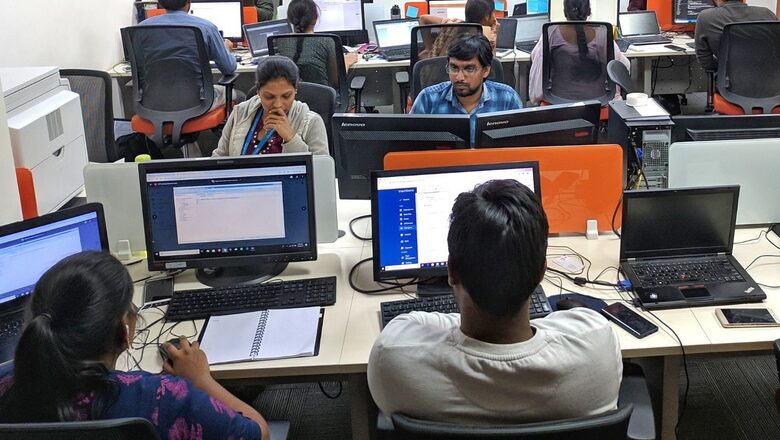
views
India is soon to see a change in the weekly work time dynamics as the central government is planning to implement the new labour laws from July 1, 2022, that is next month. If the new labour laws come into effect, there will be a huge shift in EPF contributions of an employee, office working hours, and take home salary. The central government has been working on designing the four new labour codes, under which there will be significant changes in terms of an employee’s salary, his or her PF contributions and work hours. The government wants to implement these laws as soon as possible, and media reports suggest that they will come into effect from next month even though there has been no official intimation yet.
New Labour Laws to be Implemented Soon — What’s Going to Change?
It has been mentioned earlier that if the new labour laws are implemented, it will bring about significant changed related to an employee’s office working hours, his or her EPF contributions and the take home salary.
Once the new rule comes into effect, companies will be, employees will be able to get three week offs. However, this will come at a cost. The new labour codes do not suggest there will be a reduction in the weekly working times. Therefore, employees are likely going to work for 10 to 12 hours per day for four days, and get weekly offs for the remaining three days as per the provisions of the new labour laws. Not only this, the new laws will mean that the maximum hours of overtime will jump from 50 hours (under the Factories Act) to 125 hours, across all sectors, for a quarter.
Another major change that this is going to bring in is that the ratio of the take home salary and the employees and employer’s contribution in provident fund. As per the provision of the new codes, the basic salary of the employee will have to be 50 per cent of the gross salary. While this will mean that PF contributions of the employee and employer will increase, the take home salary will decrease for some employees, especially those working in private firms.
The money received after retirement as well as the gratuity amount will also increase under the provisions of the new draft rules. This aims at enabling employees to lead a better life after retirement.
The central government under the new labour laws also wants to rationalise the leave an employee can avail during his or her tenure at a company. The policy of carrying forward a leave to the succeeding year and encashment of leaves are also being rationalised. The government is also recognising work from home structure, which has become prevalent during Covid-19, in its draft model applicable to the service industry.
The central government has notified four labour codes, namely, the Code on Wages, 2019, on August 8, 2019, and the Industrial Relations Code, 2020, the Code on Social Security, 2020, and the Occupational Safety, Health and Working Conditions Code, 2020 on September 29, 2020. So far, 23 states have framed rules under these codes, which have been passed by the Parliament.
Read all the Latest News , Breaking News and IPL 2022 Live Updates here.




















Comments
0 comment